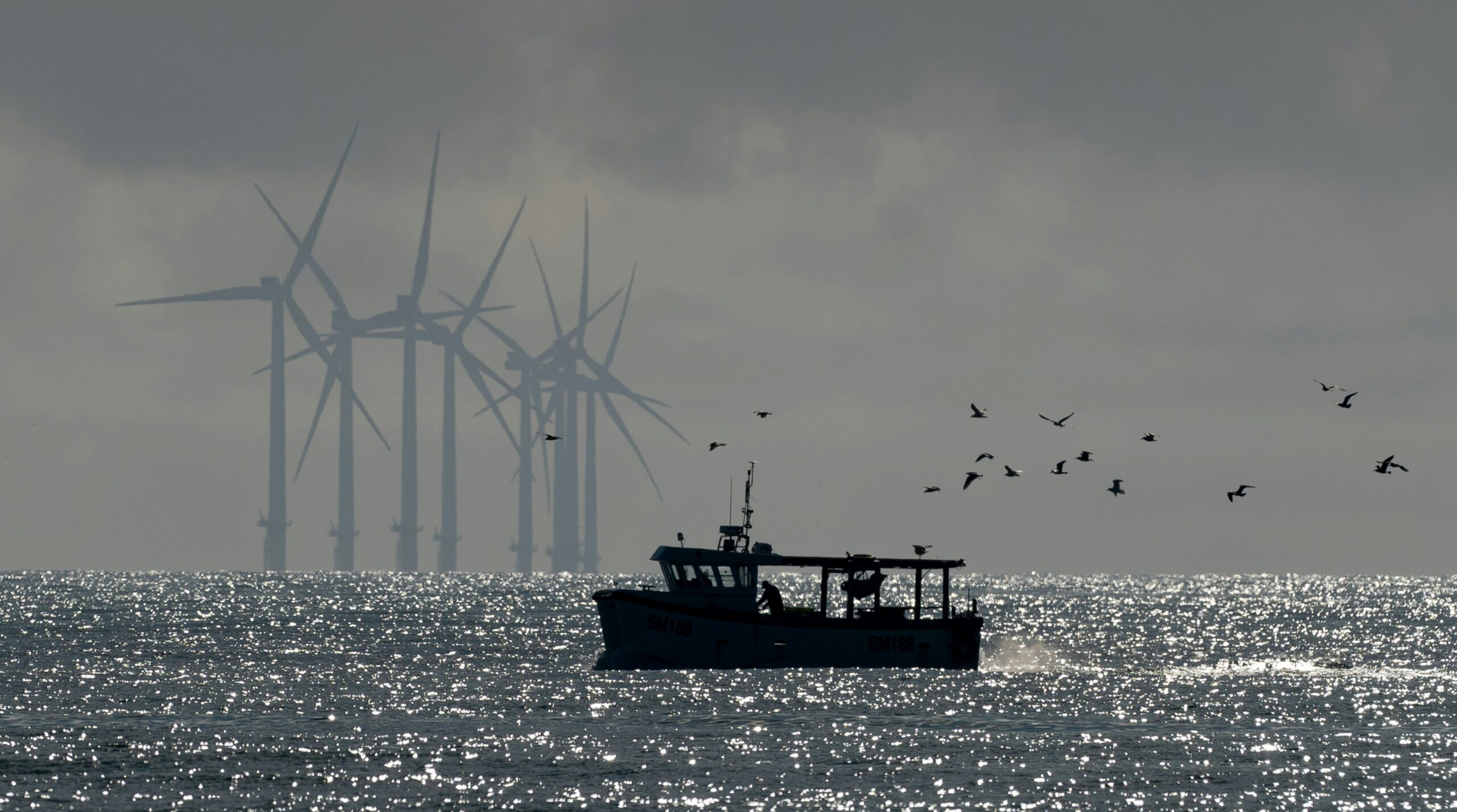Scotland’s fishing industry is calling for an immediate halt to new offshore wind consents, describing the rapid expansion of projects as a “reckless stampede” that threatens both livelihoods and marine ecosystems. The Scottish Fishermen’s Federation (SFF), which represents a large part of the fleet, has urged ministers to impose a moratorium until a strategic planning framework is developed.
The demand reflects growing unease over the scale of development in Scottish waters. According to Energy Voice, more than 20 gigawatts of offshore wind capacity are currently in the pipeline — a scale unprecedented in UK waters. While developers argue this is essential to meeting net zero and energy security goals, fishers say the cumulative impacts on traditional grounds and marine habitats have not been properly assessed.
SFF chief executive Elspeth Macdonald told STV News: “We support the transition to net zero, but not at any cost. The current process is flawed and threatens the future of Scotland’s fishing industry.” She added that fishers have been sidelined in decision-making, despite being one of the sectors most directly affected by seabed leasing.
Concerns include the displacement of fleets from productive grounds, increased navigational risks, and potential damage to marine ecosystems that underpin fisheries. The Shetland News reported strong backing for the moratorium from coastal communities, who fear the erosion of both economic opportunities and cultural heritage. The Fishing Daily warned that without urgent action, “a centuries-old industry could be sacrificed in the rush to decarbonise.”
Developers and government officials counter that offshore wind remains a cornerstone of Scotland’s climate and industrial strategy. A spokesperson told Renewables Now that projects are already subject to rigorous scrutiny, and that coexistence between fisheries and wind farms is achievable with the right safeguards.
The issue has also caught political attention. As The Orcadian noted, opposition parties have urged the Scottish Government to act as mediator between the two industries, while it has also been reported that some politicians are wary of undermining offshore wind ambitions central to both climate policy and inward investment.
The dispute echoes tensions seen internationally, where fishing industries in the EU and US have raised similar alarms about displacement, cumulative ecological impacts and lack of consultation. The debate is increasingly linked to the concept of a “just transition”, with reports warning that offshore wind development must be balanced against the needs of fishing and coastal communities to ensure they are not left behind in the shift to clean energy.
For marine policy, the standoff poses urgent questions about how to balance competing uses of the ocean. Without a credible framework for spatial planning, monitoring and stakeholder engagement, the risk of conflict between sectors is likely to intensify as Scotland pushes ahead with its offshore wind targets.
